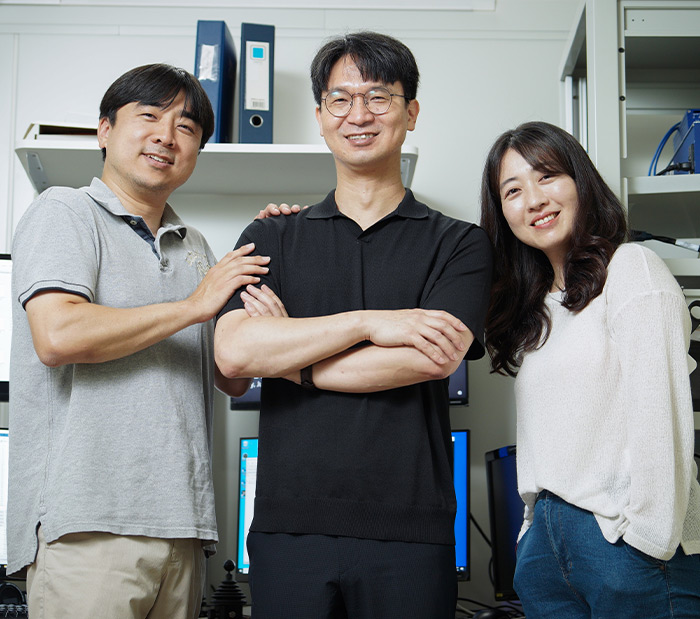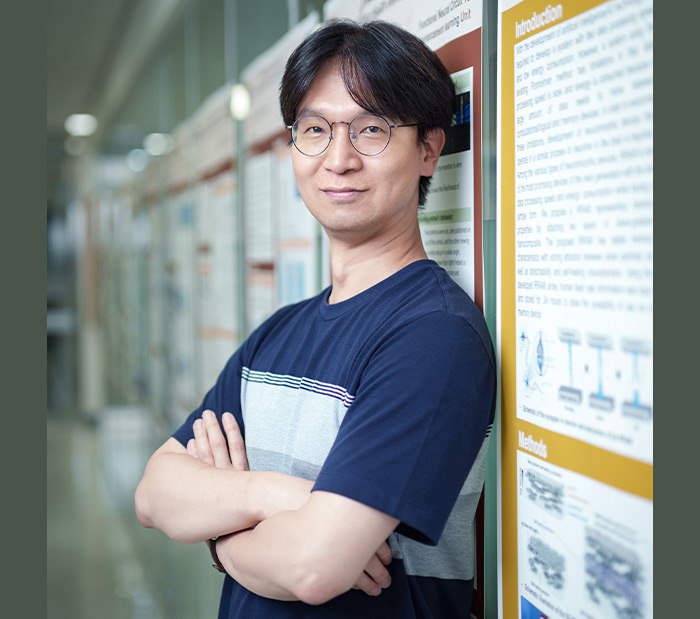Research Stories
Prior Knowledge Boosts Sensorimotor Reactions through Changes in Sensory Cortical Neural Activity
Principle investigation of interpreting visuals in the brain through prior knowledge and predictions, and controlling eye movements
Potential application in the treatment research of sensory-motor and cognitive function disorders
Biomedical Engineering
Prof.
LEE, JOONYEOL
JeongJun Park, Seolmin Kim
Animals use sensory cues to adapt and excel in their environments. Among them, primates, including us humans, heavily lean on visuals. Even if clear visual information is missing, the brain combines what it sees with memories, guiding the right reactions. Yet, the exact mechanism of how the brain processes this combined info is still under investigation.
Joonyeol Lee's team from the Department of Biomedical Engineering has unveiled that our past experiences play a role in adjusting brain activity, particularly in the sensory parts of the cerebral cortex. This adjustment sharpens an animal's ability to trace moving items, an insight derived from studying rhesus monkeys' behaviors and neural patterns.
Interestingly, when visuals indicating movement are faint or unclear, monkeys are notably sharper at tracking them when the motion is predictable. However, when the motion's unpredictable, their tracking tends to falter. This behavior matches the shifts in brain activity in a region known as area MT (middle temporal area). In essence, activity in the area MT appears to incorporate both the motion prediction and the actual visuals, echoing the improvement in tracking eye movements. Joonyeol Lee noted that area MT does more than just pass along visual details. It processes this data differently based on past experiences, shaping behavior in the process.
This study, funded by the Institute for Basic Science (IBS-R015-D1), was released online in 'Science Advances (IF 13.6)' on July 7th. Both JeongJun Park (now pursuing his PhD at Washington University in St. Louis) and Seolmin Kim were the co-first authors. The research was a collaborative effort with assistant professor HyungGoo R. Kim of the same department.


